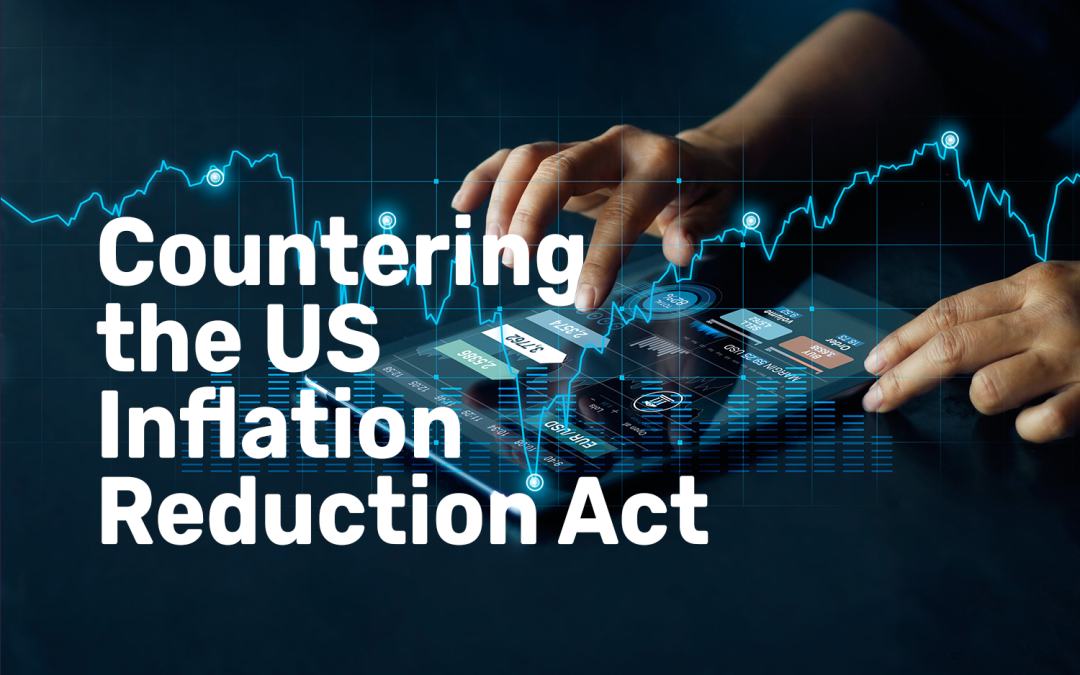Countering the US Inflation Reduction Act
The Inflation Reduction Act (IRA) of the USA came into force last August, became controversial when EU leaders noted that it subsidises “Made in America” sustainable products and components, thus harming fair competition. Since then, discussions within the EU, and between the EU and the American Biden administration, have led to potential resolutions.
During Macron’s visit to Washington in early December 2022, he and US president Joe Biden concluded that two options would put EU-US relations back on the right track. That is, firstly, to expand an exception baked into the IRA from including free-trade partners to additionally including “allies”, which would primarily mean the EU market. Secondly, for the EU to make a similar “Made in Europe” subsidy, with a matching exception for American-made products and energy.
A few days later, European Commission President Ursula Von der Leyen said the IRA “should make us reflect on how we can improve our state-aid framework” with a structural answer. She claimed a European reply to the initiative is necessary to mitigate competitive disadvantages and called for common European funding. The debate on whether this would come out of the REPowerEU budget, NextGeneration EU or RenewEU, each of which the green energy transition fits into, or whether a new fund would be created, was not settled. Opinions vary between member states, some, including Germany, say the EU has not tapped into existing funds well enough, others call for yet more funding to be made available.
Throughout December and January, France and Germany pushed for a solution by making an exception to the European regulation against subsidies, but smaller economies asked for a European subsidy, because subsidies at the national level would not allow them to keep up. Taking money out of the Emissions Trading System appears as an additional option for a budget.
In the February and March EU-tops, the European Council decided that the solution should indeed include the entire Single Market, the agenda has been determined as such:
a —
The simplification of state-aid policy, including temporary measures to promote competitiveness and the speed of the green transition. A noted example of this is tax credits.
b —
EU-wide access to financial means for this purpose, including making the existing funds more accessible, and exploiting the potential of the European Investment Bank.
c —
A more predictable regulatory environment, including simplification of administrative procedures, and easier access to raw materials and energy. Public procurement rules will also be modernised.
d —
Diversifying and transforming labour skills among the population through development actions.
e —
A European Sovereignty Fund to be established before summer 2023, this would offer more public investment opportunities and promote private investment.
With this goal in mind, the Net Zero Industry Act and the European Critical Raw Materials Act have been proposed to provide more funding and access to raw materials towards a zero carbon industry, as well as a Temporary Crisis and Transition Framework for State Aid to exceptionally allow subsidies during crises and transition periods.
While the final conclusion is still delayed, the groundwork for increased public funding for the green transition is in process. We will keep you updated with further information when a decision is made.
For more details, please feel free to contact EUFUNDINGHUB to find out more!
EU funding news and articles. All new articles in one place!
Do you want to read all the articles ahead ? Subscribe now and receive our online magazine each month!


Recent Comments